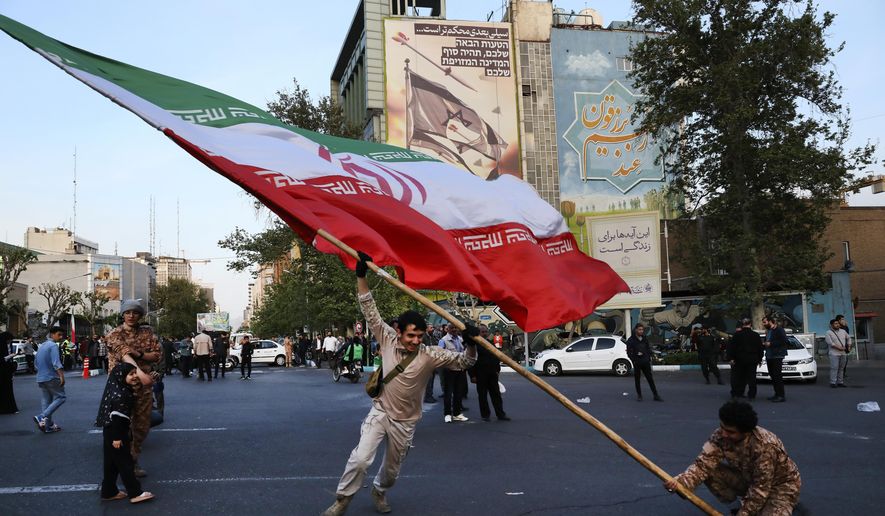Top Biden administration officials on Monday doubled down on their calls for a measured, de-escalatory response from Israel to the massive Iranian attack on the Jewish state over the weekend.
In his first public comments since the Saturday attack, Secretary of State Antony Blinken called on Israel to exercise “strength and wisdom” in crafting its next steps. The world is watching to see how Israeli Prime Minister Benjamin Netanyahu’s government responds to the attack, during which Iran fired more than 300 attack drones and missiles toward the Israeli homeland. About 99% of those munitions were intercepted by the Israeli, U.S. and other partner militaries.
“Thanks to Israeli air defenses, as well as support from other countries, including U.S. military assets, virtually all of the incoming projectiles were destroyed, shot down,” Mr. Blinken said Monday during brief public comments following a meeting with Iraqi Prime Minister Mohammed Shia al-Sudani and other Iraqi officials.
“The U.S. is committed to Israel’s defense. And I think what this weekend demonstrated is that Israel did not have to and does not have to defend itself alone when it is the victim of an aggression, of an attack,” Mr. Blinken said. “In the 36 hours since, we have been coordinating a diplomatic response to seek to prevent escalation. Strength and wisdom need to be different sides of the same coin.”
“We don’t seek escalation, but we’ll continue to support the defense of Israel and protect our personnel in the region,” he said.
Mr. Blinken’s comments underscore the administration’s position that, while the U.S. is fully committed to helping protect Israel, it does not and will not support a major military retaliation by Jerusalem against Iran.
SEE ALSO: Biden urges Israel to hold its fire after Iran attack
Tensions between Iran and Israel have been high for years, but they have neared a fever pitch in the months since Oct. 7, when the Iran-backed Palestinian militant group Hamas launched a terrorist attack that killed more than 1,200 Israelis. Another Iran-linked group, Yemen’s Houthi rebels, has waged a monthslong campaign to disrupt commercial maritime traffic in the Red Sea and other regional waterways.
On April 1, Israel launched an airstrike on a portion of the Iranian Embassy in Damascus, Syria. That strike killed Islamic Revolutionary Guards Corps Gen. Mohammad Reza Zahedi and other Iranian officials. Iranian leaders, including Ayatollah Ali Khamenei, vowed revenge, which came with Saturday’s attack. Iran now says the matter is closed, but Mr. Netanyahu’s government is weighing its own response.
The U.S., with governments across Europe and the Middle East, fear that a major Israeli military operation against Iran itself could lead to a broader escalation of hostilities across the region, something that the U.S. has desperately tried to prevent.
• Ben Wolfgang can be reached at bwolfgang@washingtontimes.com.




Please read our comment policy before commenting.